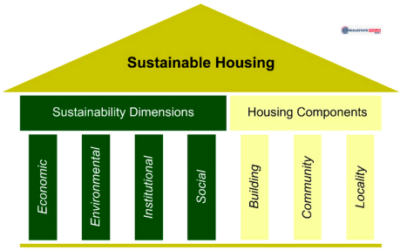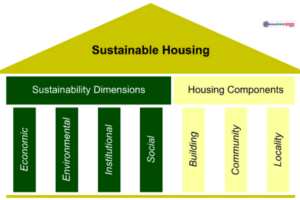

Capital Appreciation Drives Real Estate Investment Project for HNIs and UHNIs
High-net-worth individuals (HNIs) and ultra-high-net-worth individuals (UHNIs) are increasingly turning to real estate as a key investment strategy. The main motivation behind this investment is capital appreciation, which offers significant returns over time. As property values rise, these investors look to benefit from the long-term growth potential of real estate.
Real estate provides a stable asset class that can generate substantial returns. For HNIs and UHNIs, investing in property is seen as a way to diversify their portfolios and protect wealth. Over the years, real estate has proven to be a reliable source of capital growth, especially in prime locations.
Sotheby’s, a global real estate firm, highlights capital appreciation as a major driver of investment among these groups. They believe that real estate investments offer a safer option compared to other assets like stocks, which can be more volatile. Property value growth over time provides investors with a predictable and profitable path.
Real estate has always been considered a secure investment. HNIs and UHNIs, in particular, often focus on high-end properties in prime locations. These properties tend to appreciate faster than others and are seen as a way to protect their wealth. Many of these investors prefer to invest in luxury homes or commercial real estate that can provide significant returns.
The demand for premium real estate is also increasing in major cities around the world. Cities like New York, London, and Mumbai remain attractive to wealthy investors because of their stable and growing property markets. These markets continue to offer solid returns on investment, making them appealing for long-term wealth growth.
In addition to capital appreciation, real estate investments provide other benefits. For example, real estate can offer steady rental income, which adds to the appeal for HNIs and UHNIs. With the right property, investors can enjoy both capital growth and consistent cash flow, making it a balanced investment option.
Another factor driving real estate investments among HNIs and UHNIs is the relative safety of the market. Real estate is a tangible asset, unlike stocks or cryptocurrencies, which can be subject to market fluctuations. The physical nature of property makes it an attractive option for those seeking stability and long-term growth.
In recent years, some investors have also been looking at real estate in emerging markets. These markets, often in developing countries, offer opportunities for higher returns as they grow. Investors can benefit from the rise in property values in these regions as their economies improve.
Despite the attractiveness of real estate, investors still face some challenges. The high initial cost of investment in prime real estate can be a barrier for some. Additionally, the ongoing maintenance and management of properties require time and resources. However, for HNIs and UHNIs, these challenges are often outweighed by the potential for high returns and the security that real estate provides.
The rise of real estate investment trusts (REITs) has also made it easier for these investors to gain exposure to the real estate market. REITs allow investors to buy shares in real estate portfolios, providing an opportunity to invest without directly owning property. This option has become increasingly popular as it allows for easier diversification and access to a range of real estate assets.
The growing interest in real estate investment among wealthy individuals also reflects broader trends in the market. Many investors are looking for ways to hedge against inflation and economic uncertainty. Real estate has long been seen as an effective hedge, offering protection against inflation due to its ability to increase in value over time.
As the market for luxury properties continues to grow, HNIs and UHNIs are increasingly focusing on high-value investments in sought-after locations. In addition to capital appreciation, these properties often come with other advantages, such as exclusivity and prestige. For many investors, owning high-end real estate provides a sense of accomplishment and status.
Sotheby’s reports that many investors are also focused on acquiring property in lifestyle locations. These properties often provide both a place to live and an investment opportunity. Investors are looking for homes in desirable areas that offer both quality of life and potential for appreciation, making lifestyle real estate a key trend in the market.
While capital appreciation is the main driver for real estate investment among HNIs and UHNIs, they also consider other factors when making decisions. Location, property quality, and long-term market potential are all important elements in determining which investments will provide the best returns. By focusing on these key areas, investors can make informed choices that support their financial goals.
Real estate continues to be a powerful tool for building wealth, especially for those with significant financial resources. HNIs and UHNIs are leveraging their access to capital to invest in high-value properties that can generate substantial returns. Whether through direct property ownership or through other real estate investment vehicles, these individuals are prioritizing capital growth in their investment strategies.
As the real estate market continues to evolve, it is clear that capital appreciation will remain a primary motivator for investment. While other factors, such as rental income and lifestyle benefits, may play a role, the potential for property values to increase over time is a major draw for wealthy investors. With prime real estate markets continuing to show strong performance, HNIs and UHNIs are expected to keep real estate as a key component of their investment portfolios.
For real estate professionals, understanding the preferences and priorities of HNIs and UHNIs is essential in providing valuable advice. By focusing on capital appreciation and other key factors, professionals can help these investors make decisions that align with their financial goals. As the demand for high-value properties increases, real estate professionals will play a critical role in guiding investment strategies and identifying opportunities in the market.



































